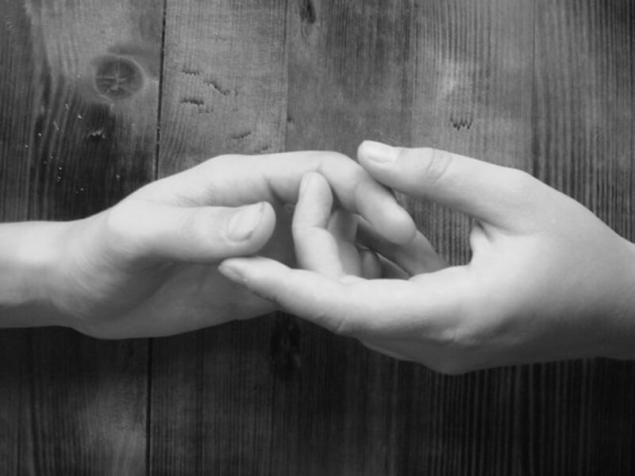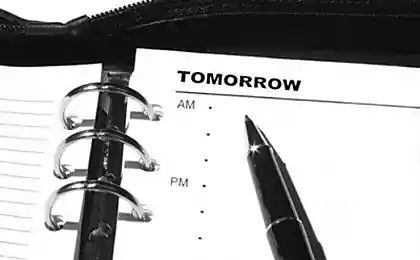712
Rudolf Dreikurs: the Courage to be imperfect
In his lecture "the Courage to be imperfect" psychologist Rudolf Dreikurs tells us on a daily basis as driven by the desire to be in charge and to the right, hiding the roots of the fear of making mistakes and why this is only the legacy of the slave psychology of the authoritarian society that it is time to say goodbye.
If you still did not get rid of obsessive desire to be good, here's the amazing speech of the Austro-American psychologist Rudolf Dreikurs "Courage to be imperfect" ("The Courage to be Imperfect"), which he read in 1957 at the University of Oregon. It is first and foremost about what makes us strive to appear better than we are, why this desire is so difficult to get rid of and, of course, about how to have the courage "to be imperfect", which is equivalent to the concept of "being real".
If I know so bad, then at least have to find out what you worse. That's what we all do. Anyone who criticizes myself, the same applies to others.

The courage to be imperfect
Today I present for your consideration one of the most important aspects of psychology. Theme for thought and meditation: "the Courage to be imperfect".
I knew an incredible number of people who tried hard to be good. But never seen they did so for the benefit of others.
I found that the only thing that is behind the desire to be good is to care about their own prestige. The desire to be good only for their own exaltation. The one who really care about the surrounding, you will not be wasting your precious time and find out, good or bad. He is just not interested.
To get clearer, I will tell you about the two ways of acting on the social scene — the two methods of application of its forces. We can define them as horizontal and vertical. What I mean?
Some people move along the horizontal axis, that is, no matter what they do, they move towards others. They want to do something for others, they are interested in others — they just act. This is fundamentally not the same as another motivation by which people move along the vertical axis. Whatever they do, they do it out of desire to be higher and better.
In fact, the improvement can be reproduced any of these 2 ways. There are people who are doing something good because it pleases them, but there are others — they do the same thing, but for a different reason. Last glad to prove how good they are.
Even human progress probably depends on the contribution of those who moves on the horizontal axis, and from those who are moving up in a vertical line. Motive for many people who have brought great benefits to mankind, was the desire to prove how good they are, to feel superior.
And others have made our world better so-called unselfish method, not thinking that they can get away with.
Nevertheless, there is a fundamental difference between the ways of achieving the goal: regardless of whether you are moving horizontally or vertically, you go forward, you accumulate knowledge, you raise your position, prestige you more and more respect, possibly even grow your wealth.
At the same time, the one who moves on the vertical axis, does not always move upwards. He then flies up, then falls down, up and down. Doing a good deed, he climbs a few steps up; the next moment, when you make mistakes, he is again at the bottom. Up and down, up and down. On this axis moves the majority of our compatriots. The consequences are obvious.
People living in this plane will never be able to accurately determine whether there is enough high it rose, and never sure that the next morning he won't fly down again. So he lives in constant tension, anxiety and fear. He is vulnerable. As soon as something is wrong, he falls, if not in the opinions of others, then certainly in his own.
Completely different is moving on the horizontal axis. Man walking horizontally, progressing in the desired direction. He's not moving up, but moving forward. When something goes wrong, he tries to understand what is happening, looking for ways around, trying to fix it. It is driven by a simple interest. If his motivation is strong, then it wakes up the enthusiasm. But he is not thinking of self-exaltation. He is interested to act and not to worry about his prestige and position in society.
So we see that in the vertical plane — the constant fear of bugs and the desire for self-exaltation.
And yet, today, many people, spurred on by social competition, dedicated himself to the problem of self-importance and self-aggrandizement — they are never good enough and not sure that will be able to comply, even if in the eyes of its citizens look prosperous.
Now we come to the basic question of those who cares about his exaltation. This global issue is primarily a problem of making mistakes.
Perhaps above all, we need to explain why people are worried about making mistakes. What threat? We turn first to our heritage, cultural traditions.
In an authoritarian society mistakes are unacceptable and inexcusable. The king-the Lord never makes mistakes, because he is free to do as he pleases. And no one dares to tell him that he has done something wrong under penalty of death.
Mistakes are made exclusively subordinates. And the only one who decides a mistake was made or not, is the boss.
So making mistakes means failure to comply with:
"While you're acting like I'm telling you, the error is excluded, because I'm right. I said so. And if you did make a mistake, it means you have not complied with my instructions. And I will not stand for it. If you dare to do something wrong, that is not so, as I told you, you can count on my cruel punishment. And if illusions, hoping that I won't be able to punish you, then there is always someone above me, who will see that you have received in full".
A mistake is a mortal sin. Made a mistake awaiting a terrible fate! Here is a typical and necessarily authoritarian idea of cooperation.
To cooperate means to do what he said. It seems to me that the fear of making a mistake is occurring for another reason. It is an expression of our way of existence. We live in an atmosphere of fierce competition.
And the error not so much afraid of punishment, which we do not even think how much the loss of our status, ridicule and humiliation: "If I do something wrong, then I'm bad. But if I am bad then I am not for that respect, I'm nobody. So, you're better than me!" Terrible idea.
"I want to be better than you because I want to be in charge!" Nowadays not much is left of indication of superiority. White man can't be proud of his superiority just because he is white. The same man, he no longer looks down on a woman — we won't let him. And even the superiority of the money — is another question, as you can lose it. The great depression has showed us that.
There is only one area where we can safely feel superior is a situation when we are right. It's a new snobbery of intellectuals: "I know more, respectively, you're stupid and I'm superior to you."
And in the struggle to achieve moral and intellectual superiority of the motif, making a mistake is extremely dangerous: "If you find out that I was wrong, as I can look down on you? But if I can't look down on you, it can make you."
In our society, the same happens in our families, where brothers and sisters, husbands and wives, parents and children look at each other from the top down due to the slightest slip, and everyone desperately tries to prove that he is right and not right they are other people.
In addition, those who don't care can tell you, "You think you're right? But in my power to punish you, and I will do anything you want, and you can't stop me!"
And although we cornered our little child, who commands us and does what he likes— at least we know what's right and he's wrong.
Mistakes put us in a difficult position. But if you are depressed, if you want and can use your internal resources, difficulties only stimulate you to make more successful attempts. There's no sense crying over a broken trough.
But most people, admitting mistakes, feel guilty: they are humiliated, they no longer respect themselves, they lose faith in their abilities. I watched it from time to time: irreparable damage not an error, but the guilt and frustration that arose after. This is something they all spoiled.
As long as we are absorbed by a false assumption about the importance of mistakes, we can't treat them calmly. This idea leads us to a wrong understanding of themselves. We pay too much attention to what is bad in us and around us.
If I'm critical of myself, I, of course, critical to the people around me.
If I know so bad, then at least have to find out what you worse. That's what we all do. Anyone who criticizes myself, the same applies to others.
Therefore, we need to come to terms with what we really are. Not as many people say: "what we are, in the end? A small speck in the ocean of life. We are limited by time and space. We are so small and insignificant. Life is so short and our stay on earth is irrelevant. How can we believe in our strength and power?"
When we stand in front of a huge waterfall or looking at the high mountains covered with snow, or was in the middle of the raging ocean, many of us are lost, feel weak, and reverence for the Majesty of the forces of nature. And only a few did, in my opinion, the correct conclusion: the strength and power of the waterfall, the awesome Majesty of the mountains and magnificent energy of the storm is the manifestation of the life that is in me.
Many people whose hearts freeze in awe of the amazing beauty of nature, just admire the amazing organization of his body, their glands, how they work, admire the strength and power of his mind. We have not yet learned to accept yourself and treat yourself in this way.
We are just starting to free themselves from the yoke of autocracy, in which the masses were excluded from the analysis and only the mind or the Governor, along with the clergy knew that people need. We haven't got rid of the slave psychology of the authoritarian past.
What would have changed if we had not been born? One kind word sunk into the soul of a young man, and he did something differently, better. Maybe thanks to him, someone was saved. We can't imagine how tough we are and how much good we are to each other.
Because of this, we are always dissatisfied with themselves and are trying to rise, afraid of pernicious errors, and desperately eager for superiority over others. So perfection is not needed, besides it is unattainable.
There are people who are terribly afraid to do something wrong due to the fact that low value themselves. They remain eternal students because the school can tell them what is right, and they know how to get good grades. But in real life it doesn't work.
He who is afraid to fail, who in any case wants to be right, cannot successfully act. There is only one condition under which you can be sure he is right is when you try to do something right.
And there's one more condition, by which you can judge that you are right or not. It is the consequences. Doing something, you can understand that the right thing only after there were consequences of this action.
Someone must be right, cannot make a decision, as never sure that I'm doing the right thing.
Being right is a false premise, whereby we often use the right for other purposes.
Have you ever wondered about the difference between the logical and psychological point? Can you imagine how many people torment their loved ones that they must be right and unfortunately they always are?
There's nothing worse than a man who is always right morally. And all the time proves it.
This is a right and logical, and moral, often destroys human relationships. In the name of righteousness we often sacrifice kindness and patience.
No, we're not coming for peace and cooperation if we are driven by the desire to be right; we're just trying to convince others we are good, but can't mislead ourselves.
No, to be human does not mean to be always right or to be perfect. To be human is to do good, to do something not only for themselves but also for others. For this you need to believe in yourself and respect for yourself and others.
But there is a necessary precondition: it is impossible to focus on human flaws, because if we are too concerned about negative qualities of people we can't respect neither to him nor to myself.
We need to realize that we are what they are, because it'll never get better, no matter how much we have learned what our position in society or how much money we have. We need to learn to live with it.
If we are not able to come to terms with what we do, we will never be able to accept others for who they are in reality.
Inner abundance leads to external
Vadim Zeland: We judge people without knowing who they really are
For this you need not be afraid to be imperfect, we must realize that we are not angels and not superheroes, that we sometimes make mistakes, and everyone has their flaws, but each of us is good enough, because there is no need to be better than others. This is a wonderful belief.
If you agree with what you are, the devil of vanity, "the Golden calf of my superiority" will disappear. If we learn to act and do everything in our power, you will get pleasure from this process.
We must learn to live in peace with each other: to understand its limitations and to always remember how strong we are.published
Rudolf Dreikurs , 1957
Source: monocler.ru/smelost-byit-nesovershennyim-rudolf-dreykurs-o-pogone-za-pravotoy-i-strahe-sovershat-oshibki/
If you still did not get rid of obsessive desire to be good, here's the amazing speech of the Austro-American psychologist Rudolf Dreikurs "Courage to be imperfect" ("The Courage to be Imperfect"), which he read in 1957 at the University of Oregon. It is first and foremost about what makes us strive to appear better than we are, why this desire is so difficult to get rid of and, of course, about how to have the courage "to be imperfect", which is equivalent to the concept of "being real".
If I know so bad, then at least have to find out what you worse. That's what we all do. Anyone who criticizes myself, the same applies to others.

The courage to be imperfect
Today I present for your consideration one of the most important aspects of psychology. Theme for thought and meditation: "the Courage to be imperfect".
I knew an incredible number of people who tried hard to be good. But never seen they did so for the benefit of others.
I found that the only thing that is behind the desire to be good is to care about their own prestige. The desire to be good only for their own exaltation. The one who really care about the surrounding, you will not be wasting your precious time and find out, good or bad. He is just not interested.
To get clearer, I will tell you about the two ways of acting on the social scene — the two methods of application of its forces. We can define them as horizontal and vertical. What I mean?
Some people move along the horizontal axis, that is, no matter what they do, they move towards others. They want to do something for others, they are interested in others — they just act. This is fundamentally not the same as another motivation by which people move along the vertical axis. Whatever they do, they do it out of desire to be higher and better.
In fact, the improvement can be reproduced any of these 2 ways. There are people who are doing something good because it pleases them, but there are others — they do the same thing, but for a different reason. Last glad to prove how good they are.
Even human progress probably depends on the contribution of those who moves on the horizontal axis, and from those who are moving up in a vertical line. Motive for many people who have brought great benefits to mankind, was the desire to prove how good they are, to feel superior.
And others have made our world better so-called unselfish method, not thinking that they can get away with.
Nevertheless, there is a fundamental difference between the ways of achieving the goal: regardless of whether you are moving horizontally or vertically, you go forward, you accumulate knowledge, you raise your position, prestige you more and more respect, possibly even grow your wealth.
At the same time, the one who moves on the vertical axis, does not always move upwards. He then flies up, then falls down, up and down. Doing a good deed, he climbs a few steps up; the next moment, when you make mistakes, he is again at the bottom. Up and down, up and down. On this axis moves the majority of our compatriots. The consequences are obvious.
People living in this plane will never be able to accurately determine whether there is enough high it rose, and never sure that the next morning he won't fly down again. So he lives in constant tension, anxiety and fear. He is vulnerable. As soon as something is wrong, he falls, if not in the opinions of others, then certainly in his own.
Completely different is moving on the horizontal axis. Man walking horizontally, progressing in the desired direction. He's not moving up, but moving forward. When something goes wrong, he tries to understand what is happening, looking for ways around, trying to fix it. It is driven by a simple interest. If his motivation is strong, then it wakes up the enthusiasm. But he is not thinking of self-exaltation. He is interested to act and not to worry about his prestige and position in society.
So we see that in the vertical plane — the constant fear of bugs and the desire for self-exaltation.
And yet, today, many people, spurred on by social competition, dedicated himself to the problem of self-importance and self-aggrandizement — they are never good enough and not sure that will be able to comply, even if in the eyes of its citizens look prosperous.
Now we come to the basic question of those who cares about his exaltation. This global issue is primarily a problem of making mistakes.
Perhaps above all, we need to explain why people are worried about making mistakes. What threat? We turn first to our heritage, cultural traditions.
In an authoritarian society mistakes are unacceptable and inexcusable. The king-the Lord never makes mistakes, because he is free to do as he pleases. And no one dares to tell him that he has done something wrong under penalty of death.
Mistakes are made exclusively subordinates. And the only one who decides a mistake was made or not, is the boss.
So making mistakes means failure to comply with:
"While you're acting like I'm telling you, the error is excluded, because I'm right. I said so. And if you did make a mistake, it means you have not complied with my instructions. And I will not stand for it. If you dare to do something wrong, that is not so, as I told you, you can count on my cruel punishment. And if illusions, hoping that I won't be able to punish you, then there is always someone above me, who will see that you have received in full".
A mistake is a mortal sin. Made a mistake awaiting a terrible fate! Here is a typical and necessarily authoritarian idea of cooperation.
To cooperate means to do what he said. It seems to me that the fear of making a mistake is occurring for another reason. It is an expression of our way of existence. We live in an atmosphere of fierce competition.
And the error not so much afraid of punishment, which we do not even think how much the loss of our status, ridicule and humiliation: "If I do something wrong, then I'm bad. But if I am bad then I am not for that respect, I'm nobody. So, you're better than me!" Terrible idea.
"I want to be better than you because I want to be in charge!" Nowadays not much is left of indication of superiority. White man can't be proud of his superiority just because he is white. The same man, he no longer looks down on a woman — we won't let him. And even the superiority of the money — is another question, as you can lose it. The great depression has showed us that.
There is only one area where we can safely feel superior is a situation when we are right. It's a new snobbery of intellectuals: "I know more, respectively, you're stupid and I'm superior to you."
And in the struggle to achieve moral and intellectual superiority of the motif, making a mistake is extremely dangerous: "If you find out that I was wrong, as I can look down on you? But if I can't look down on you, it can make you."
In our society, the same happens in our families, where brothers and sisters, husbands and wives, parents and children look at each other from the top down due to the slightest slip, and everyone desperately tries to prove that he is right and not right they are other people.
In addition, those who don't care can tell you, "You think you're right? But in my power to punish you, and I will do anything you want, and you can't stop me!"
And although we cornered our little child, who commands us and does what he likes— at least we know what's right and he's wrong.
Mistakes put us in a difficult position. But if you are depressed, if you want and can use your internal resources, difficulties only stimulate you to make more successful attempts. There's no sense crying over a broken trough.
But most people, admitting mistakes, feel guilty: they are humiliated, they no longer respect themselves, they lose faith in their abilities. I watched it from time to time: irreparable damage not an error, but the guilt and frustration that arose after. This is something they all spoiled.
As long as we are absorbed by a false assumption about the importance of mistakes, we can't treat them calmly. This idea leads us to a wrong understanding of themselves. We pay too much attention to what is bad in us and around us.
If I'm critical of myself, I, of course, critical to the people around me.
If I know so bad, then at least have to find out what you worse. That's what we all do. Anyone who criticizes myself, the same applies to others.
Therefore, we need to come to terms with what we really are. Not as many people say: "what we are, in the end? A small speck in the ocean of life. We are limited by time and space. We are so small and insignificant. Life is so short and our stay on earth is irrelevant. How can we believe in our strength and power?"
When we stand in front of a huge waterfall or looking at the high mountains covered with snow, or was in the middle of the raging ocean, many of us are lost, feel weak, and reverence for the Majesty of the forces of nature. And only a few did, in my opinion, the correct conclusion: the strength and power of the waterfall, the awesome Majesty of the mountains and magnificent energy of the storm is the manifestation of the life that is in me.
Many people whose hearts freeze in awe of the amazing beauty of nature, just admire the amazing organization of his body, their glands, how they work, admire the strength and power of his mind. We have not yet learned to accept yourself and treat yourself in this way.
We are just starting to free themselves from the yoke of autocracy, in which the masses were excluded from the analysis and only the mind or the Governor, along with the clergy knew that people need. We haven't got rid of the slave psychology of the authoritarian past.
What would have changed if we had not been born? One kind word sunk into the soul of a young man, and he did something differently, better. Maybe thanks to him, someone was saved. We can't imagine how tough we are and how much good we are to each other.
Because of this, we are always dissatisfied with themselves and are trying to rise, afraid of pernicious errors, and desperately eager for superiority over others. So perfection is not needed, besides it is unattainable.
There are people who are terribly afraid to do something wrong due to the fact that low value themselves. They remain eternal students because the school can tell them what is right, and they know how to get good grades. But in real life it doesn't work.
He who is afraid to fail, who in any case wants to be right, cannot successfully act. There is only one condition under which you can be sure he is right is when you try to do something right.
And there's one more condition, by which you can judge that you are right or not. It is the consequences. Doing something, you can understand that the right thing only after there were consequences of this action.
Someone must be right, cannot make a decision, as never sure that I'm doing the right thing.
Being right is a false premise, whereby we often use the right for other purposes.
Have you ever wondered about the difference between the logical and psychological point? Can you imagine how many people torment their loved ones that they must be right and unfortunately they always are?
There's nothing worse than a man who is always right morally. And all the time proves it.
This is a right and logical, and moral, often destroys human relationships. In the name of righteousness we often sacrifice kindness and patience.
No, we're not coming for peace and cooperation if we are driven by the desire to be right; we're just trying to convince others we are good, but can't mislead ourselves.
No, to be human does not mean to be always right or to be perfect. To be human is to do good, to do something not only for themselves but also for others. For this you need to believe in yourself and respect for yourself and others.
But there is a necessary precondition: it is impossible to focus on human flaws, because if we are too concerned about negative qualities of people we can't respect neither to him nor to myself.
We need to realize that we are what they are, because it'll never get better, no matter how much we have learned what our position in society or how much money we have. We need to learn to live with it.
If we are not able to come to terms with what we do, we will never be able to accept others for who they are in reality.
Inner abundance leads to external
Vadim Zeland: We judge people without knowing who they really are
For this you need not be afraid to be imperfect, we must realize that we are not angels and not superheroes, that we sometimes make mistakes, and everyone has their flaws, but each of us is good enough, because there is no need to be better than others. This is a wonderful belief.
If you agree with what you are, the devil of vanity, "the Golden calf of my superiority" will disappear. If we learn to act and do everything in our power, you will get pleasure from this process.
We must learn to live in peace with each other: to understand its limitations and to always remember how strong we are.published
Rudolf Dreikurs , 1957
Source: monocler.ru/smelost-byit-nesovershennyim-rudolf-dreykurs-o-pogone-za-pravotoy-i-strahe-sovershat-oshibki/
The perfect biscuit —cake "Food of angels"
The project of six electric cars Vision of the Mercedes-Maybach 6























